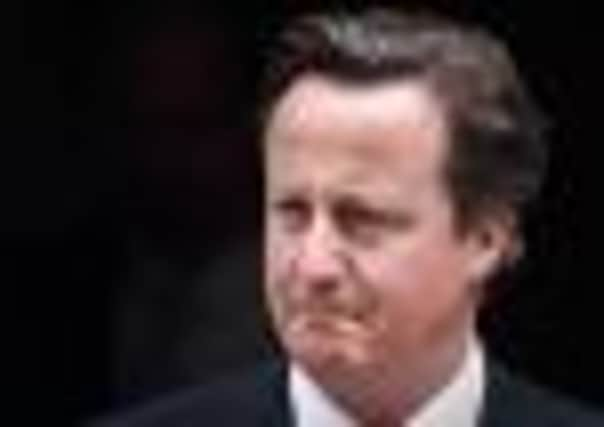Cameron dismisses claims over bid for BSkyB


Mr Cameron repeatedly failed to rule out having discussed the BSkyB bid with News International executives as he spent two hours answering questions from MPs about the hacking scandal and allegations of corrupt payments by journalists to the police.
Labour said his refusal to answer questions made him look “slippery” although Mr Cameron insisted he had never had “inappropriate” conversations.
Advertisement
Hide AdAdvertisement
Hide AdDowning Street aides last night admitted that he could not rule out having discussed the deal in private conversations with the company’s executives but insisted he always ensured he was excluded from the process of reaching a decision on the deal, which was the responsibility of Culture Secretary Jeremy Hunt and has since been withdrawn by News Corp in the wake of the hacking scandal.
One aide said: “The Prime Minister couldn’t rule out that it was raised with him. But there were no inappropriate conversations had about BSkyB.”
MPs were recalled to Parliament for an additional day for Mr Cameron’s statement on the hacking affair and the resignations of Metropolitan Police Commissioner Sir Paul Stephenson and assistant commissioner John Yates.
The statement, and a lengthy debate on the controversy which is being probed by 60 police officers and has led to the closure of the News of the World, took place as News Corporation chairman Rupert Murdoch flew back to the US after giving evidence to a select committee on Tuesday.
Advertisement
Hide AdAdvertisement
Hide AdMr Cameron admitted he regretted appointing former News of the World editor Andy Coulson as his director of communications in light of the recent furore about wrongdoing during his time at the paper. He admitted he would have to make a “profound apology” if Mr Coulson, who was arrested last week, had lied about knowing nothing about phone hacking.
Labour leader Ed Miliband accused the Prime Minister of repeatedly ignoring warnings about the danger of keeping Mr Coulson at the heart of government, including a report last year in the New York Times in which former News of the World reporter Sean Hoare alleged that Coulson actively encouraged hacking.
Mr Miliband also seized on the revelation that Mr Yates had offered to brief the Prime Minister on the phone-hacking situation last September, but Number 10 chief of staff Ed Llewellyn had rejected the suggestion.
The Labour leader said there appeared to have been “a deliberate attempt to hide from the facts about Mr Coulson”.
Advertisement
Hide AdAdvertisement
Hide Ad“The Prime Minister was caught in a tragic conflict of loyalty between the standards of integrity that people should expect of him and his staff and his personal allegiance to Mr Coulson,” said Mr Miliband. “He made the wrong choice.”
But Mr Cameron accused the Labour leader of “punting feeble conspiracy theories” and said that it would have been “completely wrong” for Mr Llewellyn to accept the offer of a private briefing on police operations.
The Prime Minister also dismissed claims that he broke the ministerial code of conduct by meeting News International executives while Mr Murdoch was bidding to take over BSkyB.
And he said that he was not aware until Sunday that Mr Coulson had recruited Neil Wallis - his former deputy editor at the News of the World, who was also arrested last week - to provide unpaid advice during the Conservative general election campaign last year. Defending Mr Llewellyn’s decision to turn down a briefing - which was backed up by Number 10’s top civil servant – Mr Cameron said there would have been “justified outrage” if he had asked for or been given privileged information.
Advertisement
Hide AdAdvertisement
Hide Ad“To risk any perception that No 10 was seeking to influence a sensitive police investigation in any way would have been completely wrong,” he said,
Simon Hughes, deputy leader of the Liberal Democrats, said the role of Mr Llewellyn had been “entirely beyond reproach throughout” and Keith Vaz, the Labour chairman of the Home Affairs Select Committee, also backed the decision to keep the Prime Minister in the dark.
Meanwhile Mr Cameron has also named the panel of independent experts who will help Lord Justice Leveson examine media practices in the wake of the scandal.
They include Shami Chakrabarti, the director of human rights group Liberty; former Daily Telegraph journalist George Jones; former Channel 4 political editor Elinor Goodman; former Financial Times chairman Sir David Bell; former Ofcom chairman Lord David Currie; and former West Midlands chief constable Sir Paul Scott-Lee.
The inquiry will look at the phone hacking scandal specifically but also at broader issues involving politics, the media and the police.
It is expected to report within 12 months.